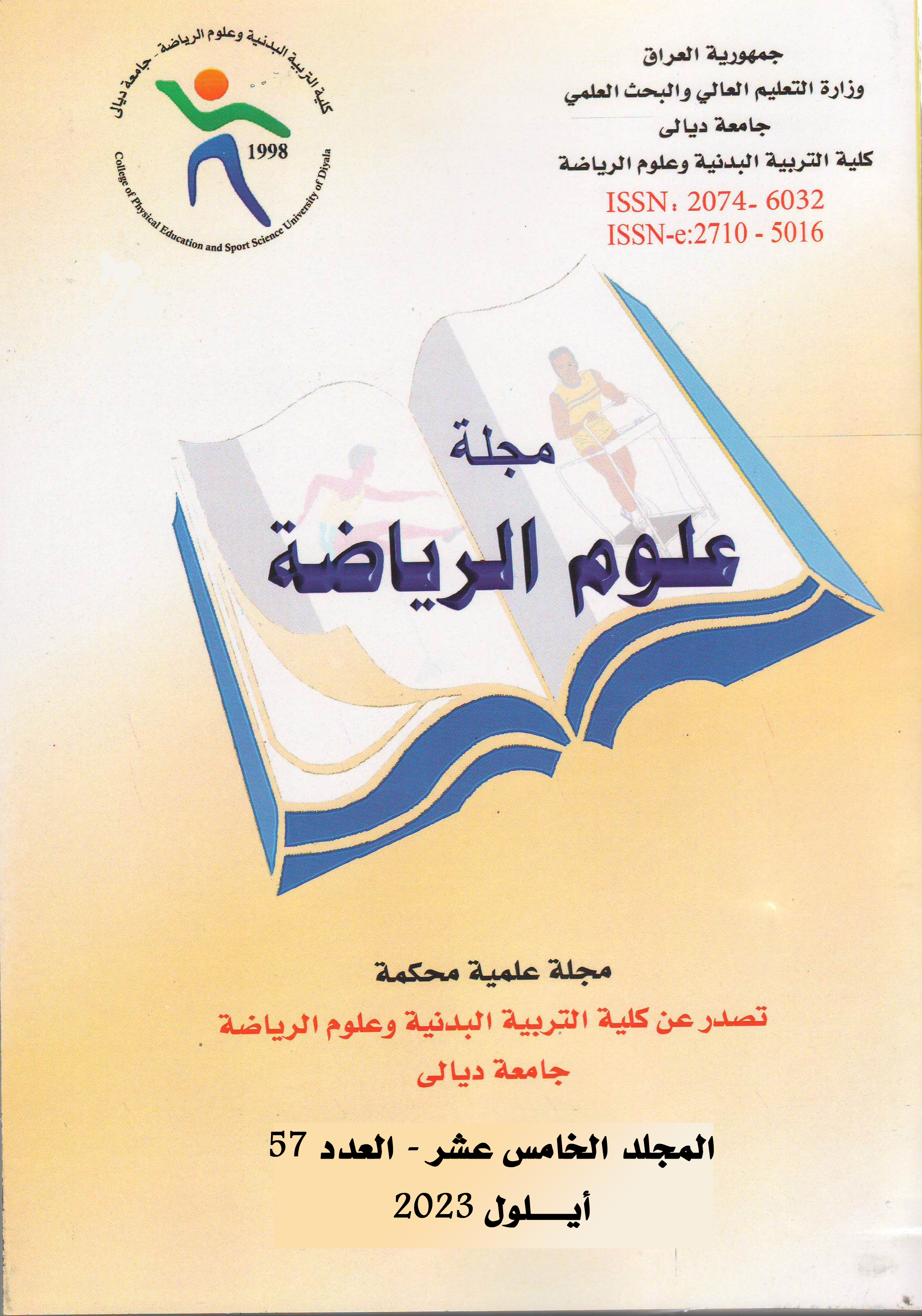The impact of the training and programmed methods on cognitive achievement and learning to serve in tennis for students
Main Article Content
Abstract
Search goal to:
- Identifying the effect of the two training and programmed methods to learn the skill of serving in the tennis game among the research sample.
- Find out the extent of students' cognitive achievement after applying the two methods.
The researcher used the experimental educational method by dividing the sample into three groups with two choices, tribal and post, and the research chose the research community as third-stage students in the College of Physical Education and Sports Sciences, Diyala University for the academic year 2021/2022, as they numbered (256) students divided into (6 people), as represented The research sample consisted of two experimental groups represented by the training method and the programmed method. It was chosen from the (45) students of Division (A), and (5) students were excluded for not being committed to working hours. Thus, the final total of the experimental sample is (40) students who were distributed into two experimental groups, the first experimental group. The (training method) group, numbering (20) students, the second experimental group, the (programmed method) group, numbering (20) students, and the third group, the control group, (20) students from Division (C) were chosen randomly, as the number of members of this group reached ( 38) students were excluded (6) of them for not being committed to working hours, as well as (12) students were excluded for their selection for the exploratory experiment, and thus the proportion of the research sample is (24.43%).
There are statistically significant differences between the pre and post tests between the three groups and in favor of the post test. A realistic performance of the skill and state of play, as well as providing the student’s technical needs and interests and the spirit of competition had a positive impact on learning the skill of serving in tennis for the second experimental group, and the experimental group excelled in learning the programmed method over the experimental group in the training method and the control group in learning the tennis serve skill as it gave An opportunity to practice and perform skills in a new and fun way through electronic competitive games.
Article Details
Conference Proceedings Volume
Section

This work is licensed under a Creative Commons Attribution 4.0 International License.
